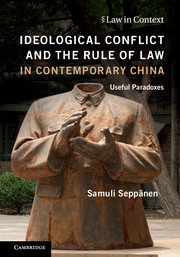Book contents
- Frontmatter
- Dedication
- Contents
- Foreword
- Preface and acknowledgments
- 1 Introduction
- 2 Setting the stage
- 3 Ideological cynicism meets theoretical skepticism
- 4 Useful paradoxes: the conservative socialist ideological position
- 5 Thick mainstream, thin liberalism and vice versa
- 6 Avant-garde renewal and nostalgia
- 7 Conclusions
- Textbook answers to the questions in Chapters 1–6
- Bibliography
- Index
7 - Conclusions
Published online by Cambridge University Press: 05 July 2016
- Frontmatter
- Dedication
- Contents
- Foreword
- Preface and acknowledgments
- 1 Introduction
- 2 Setting the stage
- 3 Ideological cynicism meets theoretical skepticism
- 4 Useful paradoxes: the conservative socialist ideological position
- 5 Thick mainstream, thin liberalism and vice versa
- 6 Avant-garde renewal and nostalgia
- 7 Conclusions
- Textbook answers to the questions in Chapters 1–6
- Bibliography
- Index
Summary
We shake the tree of learning so that the answers fall out and so that we can return with that which is our primary intellectual nourishment: a deciphered secret. But nothing falls.
– Roland Barthes on his return from a visit to China in 1974. Cited in Hayot, Chinese Dreams, 133.“But nothing falls”?
Why should an outsider be interested in the Chinese debate on the rule of law? It may, of course, be enlightening in its own right to learn about the inter-elite ideological battles in one of the world's superpowers. More instrumentally, somebody looking to make a “false necessities” point about the rule of law may find useful argumentative strategies in the diversity of the Chinese rule of law discourse. Things are different in China, and hence the argument goes, no single rule of law model is better than any other rule of law model. The liberal (democratic) rule of law model, in particular, is only one possible rule of law model among many others. This argumentative strategy is not limited to the critique of liberalism and Western rule of law advocacy. It can also be a way for a scholar to condemn the outrages of Western colonialism and imperialism and express sympathies toward the (as such inscrutable) “Other.” Somebody else, looking to justify the advocacy of specific liberal legal institutions in China or elsewhere in the world, may draw the opposite conclusion from the Chinese rule of law discourse. From this perspective, the diversity of the Chinese rule of law discourse means that Chinese intellectuals have not been able to produce a legitimate, non-liberal rule of law model. Things are not that different in China, and hence the argument goes, nothing prevents international development agencies, nongovernmental organizations and Western governments from promoting liberal legal institutions in China. Also this argumentative strategy extends beyond the justification of specific legal reforms: it can also be a means for a scholar to condemn the outrages of Western colonialism and imperialism and to demonstrate sympathies toward the (eminently scrutable) “Other” as a member of common humanity.
- Type
- Chapter
- Information
- Ideological Conflict and the Rule of Law in Contemporary ChinaUseful Paradoxes, pp. 164 - 182Publisher: Cambridge University PressPrint publication year: 2016



